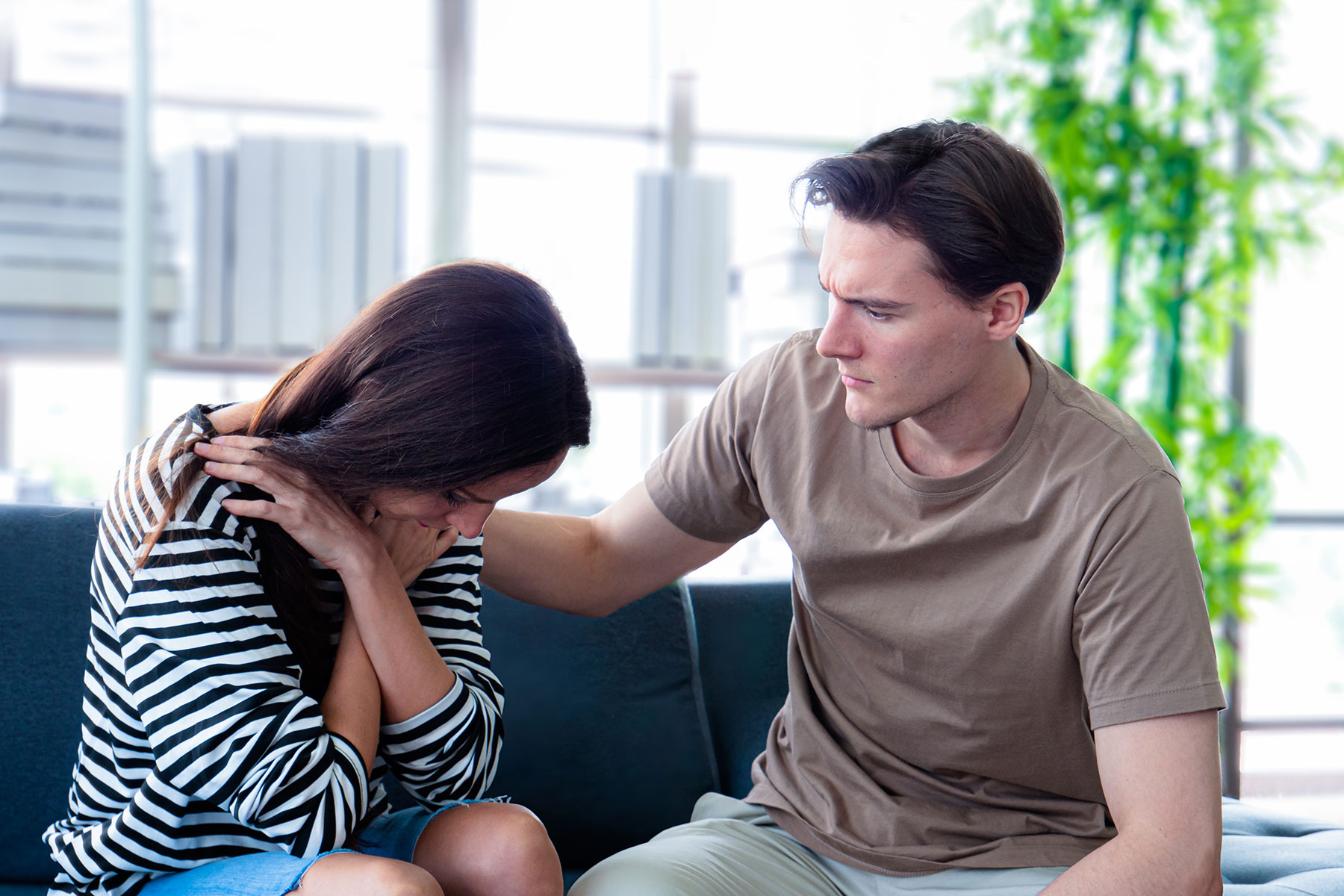Depression is one of the most common mental health disorders worldwide, so you likely know or love someone with depression. When a friend or family member struggles with depression, knowing what to say or how to support them isn’t always easy. You might fear saying something wrong or that your words will worsen things. However, helping someone with depression is less complicated than it seems. One of the best things you can do is to let them know they are not alone and that you want to support them.
The depression treatment program at Evoke Wellness at Cohasset provides comprehensive treatment for individuals and their families. There are many types of depressive disorders that require different treatment approaches, so it is critical to seek professional help to ensure the most effective treatment. Contact us at 866.931.6429 to learn more about depression treatment and how you can support a loved one.
Recognizing Depression vs. Sadness
Depression is one of the leading cause of leading causes of disability for tens of millions of people. The term “depression” is often misused to describe periods of sadness we experience when going through difficult situations. Because so many people equate depression with episodic sadness, the severity of the disorder is often misunderstood. Recognizing the difference between sadness and depression can help you know when to seek help.
Sadness is a normal emotional reaction to a significantly stressful, challenging, or unexpected life event. People experiencing sadness can find relief by venting, such as crying, yelling, journaling, exercising, or talking to someone. Sadness typically goes away relatively quickly. When someone is experiencing sadness, they can still enjoy other aspects of their life.
By contrast, depression is all-encompassing and can overpower a person’s ability to manage everyday life. Sadness is just one symptom of depression, and those with depression usually cannot identify a particular source of their sadness. Besides sadness, other signs and symptoms of depression can include:
- Persistent feelings of excessive guilt or worthlessness
- Fatigue and low energy
- Inability to concentrate or make decisions
- Loss of interest in typically enjoyed activities for an extended length of time
- Significant and unintentional weight loss or weight gain
- Sleep disturbances, including sleeplessness, insomnia, or hypersomnia
- Depressed mood that for most of the day, on most days, with noticeable signs of hopelessness or sadness
- Recurrent thoughts of death and suicide, or making suicide plans or attempts
Other symptoms of depression can include irritability, restlessness, insomnia, hypersomnia, digestive problems, headaches, stomachaches, and general aches and pains not associated with a specific cause. Individuals who experience five or more of these symptoms for longer than two weeks can receive a diagnosis of clinical depression, which requires professional treatment.
Supporting a Loved One with Depression
Supporting a loved one with depression can be challenging but vital. Some people with depression cannot recognize or acknowledge it. People who are unaware of the signs and symptoms of depression may assume everyone feels the way they do. Too often, people who recognize their depression feel ashamed or embarrassed, preventing them from seeking help.
If you recognize a friend or family member is struggling with depression, your support can tremendously impact their well-being. Research shows that high-quality interpersonal connections are a protective factor for depression and anxiety. Simply letting them know they have your support is beneficial.
Consider the following tips for supporting a loved one with depression:
- Educate yourself about depression
- Be a good listener
- Offer to spend time together
- Be patient
- Avoid judgment
- Encourage self-care
- Stay connected consistently
- Respect their boundaries
- Encourage seeking professional help and offer resources
Remain mindful of the warning signs and any references to suicidal thoughts seriously. It’s essential to remember that someone with depression is hurting. Even if you say and do all the “right” things, your loved one may become distant, angry, or lash out at you. If this happens, try not to take it personally and continue supporting them however possible.
Learn More About Supporting a Loved One with Depression at Evoke Wellness in Cohasset, MA
Living with depression can cause unnecessary pain and suffering. The sooner one seeks depression treatment, the sooner they can resume a better quality of life. If your loved one struggles with depression, help is available at Evoke Wellness at Cohasset.
Our admissions counselors are available online and through calling. Call 866.931.6429 to learn more about our depression treatment program and how you can best support your loved one.




